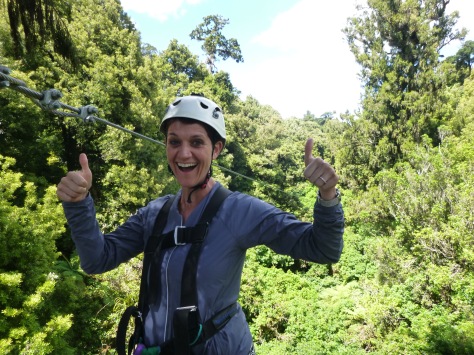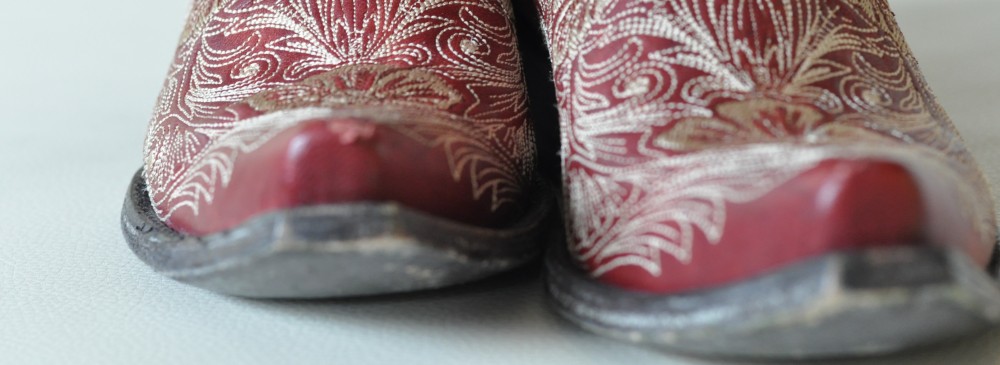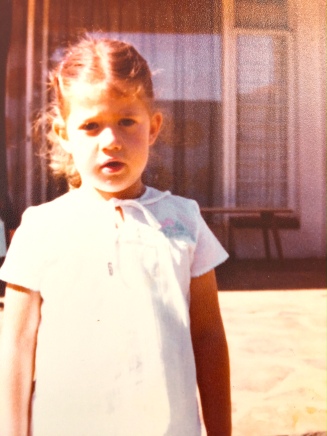
The rickety wooden staircase leads to nowhere. But that isn’t the problem. Not really. There are only three stairs, and while they are made of little more than splintering 2-by-4s thrown together with a few rusty nails, they look solid enough to hold a person, or even two. And I know they are stable — I’d seen my husband and two of my kids walk down them only minutes before.
So I know they don’t really lead to nowhere. But when all that’s between the last creaky step and the firm ground 72 feet below is a beautiful but flimsy canopy of bright-green leaves, it is challenging to think rationally.
At least for me.
No, the wooden staircase to nowhere is not the problem. The problem is I don’t like being too high up. I never have. Most of the time I like to feel my two feet — or hands, or knees, or some part of me — fixed to the earth. I like to take deep breaths, and close my eyes and feel steady. It’s where I’m most comfortable, most myself.
I don’t go on rollercoasters and I hate the flying swing at the Santa Cruz Beach Boardwalk, and if I find myself at the top of the Empire State Building or walking across the Golden Gate Bridge (because how can you visit New York City or San Francisco and not do either of those things), I never go too close to the edge.
Of course, I do have to leave the safety of my solid and unmoving comfort zone, usually to take a flight or to swim in the bay. My heart races a little and my fingers tingle and the blood rushes in my ears for a few seconds, but I can feel the airplane seat beneath me or the salty water around me, and I breathe and close my eyes and my heart slows and I can keep going.
And yet here I am. Some 6 dozen feet above the earth, standing on the edge of a wobbly staircase, with really nothing between me and the safe ground below because even though those lovely green leaves are full of light and energy, they will do little more than gently wave as I fly past them. I’m about to leap so far out of my comfort zone I wonder if I’ll ever return. And I’m terrified.
I am in a harness, I try to reassure myself, and I am safely strapped to a zipline with multiple cables. I carefully watched as the guide strapped me in, checked and then checked again. My head tells me over and over that I cannot fall through the forest, that I can only soar above the treetops and land safely on the platform on the other side. Most of the trees I will fly over are close to 1,000 years old.
Two of my kids are waiting for me at the other end of this zipline. It’s 250 yards long, the longest on this treetop tour. Two are waiting for me to take the leap. I don’t want to do it. My heart is pounding, my ears are roaring, and all I can think of is the nothingness I will feel around me as I zoom down the line.
“Mom, are you OK? It’s your turn,” my daughter looks at me with worry in her green-gray eyes. She knows I’m scared. I think she is too, a little. But her eyes are bright, more green than gray, and she looks happy and alive. With my encouragement, my kids venture out of their comfortable spaces all the time, and always without regret. They try out for teams and plays, they go snowboarding and waterskiing, they learn Torah, they try new foods, they go to sleep-away camp… I can do this.
I propel myself forward off the edge of the step and into the rushing warm air. For 20 seconds all I can see and smell are thousands of gorgeous trees, their leaves waving encouragingly. I smile and reach my arms out wide. I close my eyes and breathe. It’s magical here, high above my comfort zone.
This essay first appeared on Jweekly.com.




